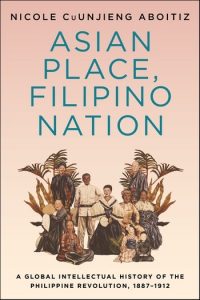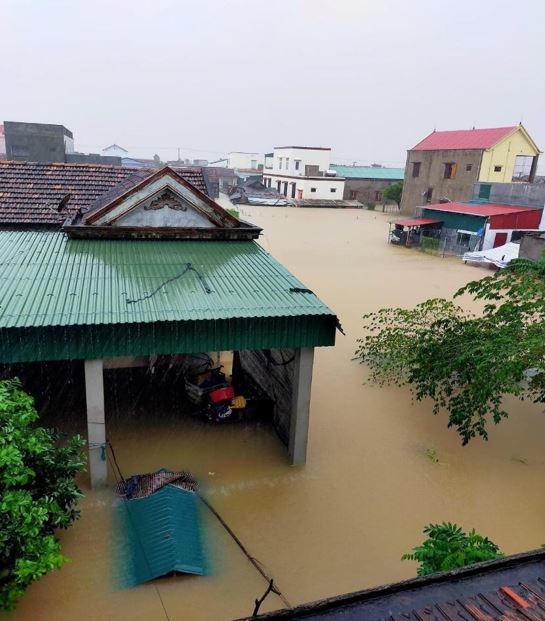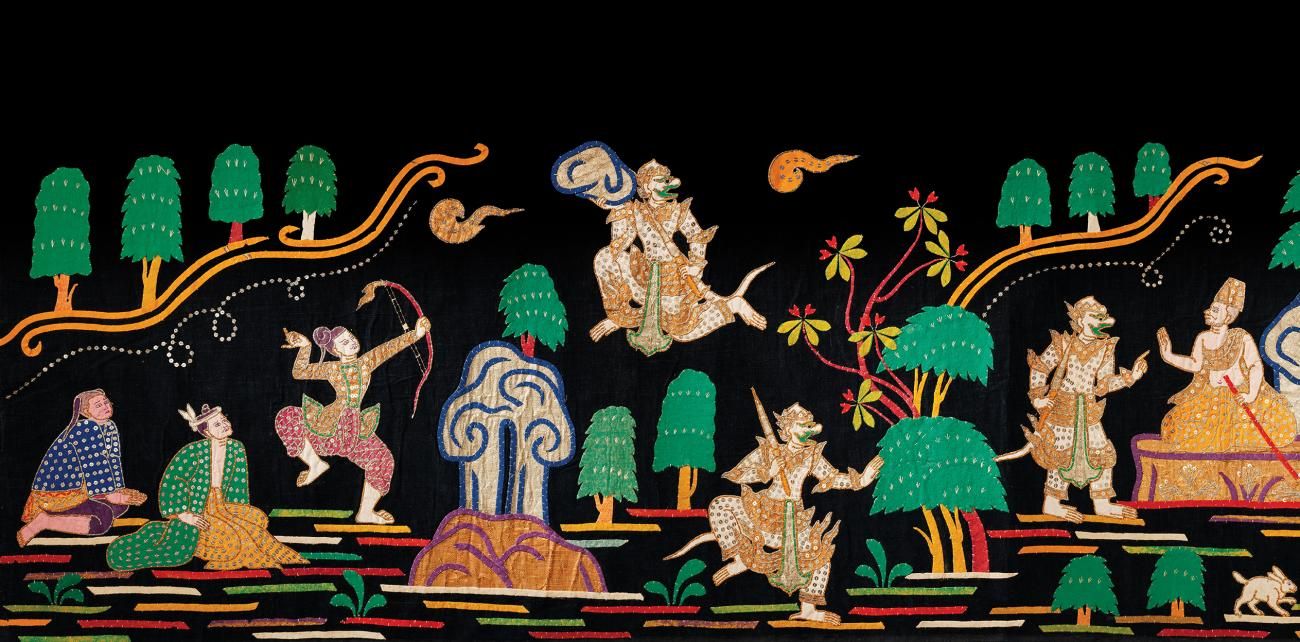One of the potential benefits that Asian Place, Filipino Nation might bring is a revision of the way the history of the 1898 revolution is taught for young Filipino students. While a pedagogical strategy in the Philippines might focus the view on how the nation arose within the context of the archipelago vis-a-vis the Spanish colonisers, the question about how one can introduce the spread of ideas and resources beyond assigned territorial boundaries needs to be faced, writes Niccolo Vitug
_______________________________________________
Nicole CuUnjieng Aboitiz. Asian Place, Filipino Nation. A Global Intellectual History of the Philippine Revolution, 1887-1912. Columbia UP, 2020.

Asian Place, Filipino Nation presents a view of Philippine history not often seen, in my opinion. I come from the vantage point of one who received an education on Philippine history since childhood. The focus, as I saw it, was on the Spanish colonisation, the eventual American takeover, and subsequent Filipino sovereignty. Discussions of the nation continue to be centred on our postcolonial situation based on this framing—and perhaps the loudest voices against neo-colonial forces would be those associated with the important contributions of national democrats.
The author of this book, Nicole CuUnjieng Aboitiz, proceeds in a way that is not as linear as my recollection, and which opens up spaces for new decolonising paths. Hers is a transnational approach, calling to dig deeper into specific aspects and players not focused on one nation alone. In doing so CuUnjieng Aboitiz creates a new contrapuntal big picture, in which the Philippine revolution of 1898 is seen as the birthing of a nation within an Asian place—a term devised by CuUnjieng Aboitiz to denote the location of networked decolonising relations at the turn of the 20th century.
The approach that the author takes is one of archival research from various places. One might associate such a reading with getting to know a local community. However, what CuUnjieng Aboitiz does is to work from the view of a geographical region, and thus make connections between nations in East and Southeast Asia through what might be a turn in local studies. I believe that, for scholars like me who are interested in the study of local culture, this opens up new ways of understanding, and perhaps possibilities of communicating local knowledges with scholars of other cultures.
A Filipino reading this book would likely be familiar with some of the players in the Philippine revolution. There is the Propaganda Movement, to which are associated Jose Rizal, Marcelo del Pilar, and Mariano Ponce, who would be a central figure in the Pan-Asianist movement. Their attempts to call for reforms from the Spanish government through various forms of writing would be recalled in this book, though the focus would be on the aspect of creating an impression of race. This is an important turn because of its relevance to how relations with other Asians would be forged.
While immediate recall of the Philippine revolution would be centred on fighting against the Spanish, and later against the Americans after the Treaty of Paris, Asian Place, Filipino Nation is trained on how assistance was sought for from alliances developed within Asia. A big focus of this book is relationships with Japanese players, as Japan was seen as a force that rose up against the imperial motions of the United States thanks to the Meiji restoration.
One of the most interesting details in the book pertains to how there was a sense of paranoia among the Spanish colonisers about how players in the revolution such as Andres Bonifacio sought assistance from Japan. This is very related to how Jose Rizal wanted to enable those from the Philippine islands to gain an education from outside the archipelago. CuUnjieng Aboitiz interestingly mentions that certain Japanese cities such as Yokohama were hubs for revolutionary action, thus prompting opinions that Spain should place its representative in the East Asian country on alert.
Other players in the Asian place were also discussed. From the Philippines, this would be Mariano Ponce, who was given a diplomatic role in the revolutionary government of Emilio Aguinaldo. Ponce was able to forge relations with the Japanese, but perhaps the most famous friend that he would make was Sun-Yat-sen, who is associated with China and Taiwan. On the other hand, the Dong Du (Go East) movement in Vietnam would also encourage study in Japan in order to foster decolonisation.
One of the potential benefits that Asian Place, Filipino Nation might bring is a revision of the way the history of the 1898 revolution is taught for young Filipino students. While a pedagogical strategy in the Philippines might focus the view on how the nation arose within the context of the archipelago vis-a-vis the Spanish colonisers, the question about how one can introduce the spread of ideas and resources beyond assigned territorial boundaries needs to be faced. At a time when global flows have been established as important parts of critical and cultural discussions, it is hoped that the idea can be translated for learners in the secondary and even primary levels.
Another potential benefit that Asian Place, Filipino Nation might have would be the expansion of the toolkit of perspectives about how liberation, in the more inclusive sense of the word, can be achieved. The fundamental turn towards local identification and solidarities within place might be explored further in tandem with analyses that focus on class struggle. Taken together, it may be the start of devising a range of approaches in which greater social equity might be achieved.
It is my personal hope that studies in global history such as this book might serve the purpose of benefitting nations in practical ways outside the realm of academic discussion. At the end of the day, a scholar might find oneself at the crossroads of a research topic, and consider that something transnational might be the way to go due to its popularity and currency. However, what one might want to consider is that human experience is something that is understood by a close look that is even more incisive than looking at the local.
Perhaps, it is fair to say that scholars can contribute more to finding significant applications of transnational research findings to specific situations. What urges me to say something that might be so audacious is the COVID-19 pandemic that we are all facing at this time. What can be more transnational and so personal at the same time?
Anything that can be done to alleviate practical concerns of people—which includes forwarding the cause of greater freedom from neo-colonial and neoliberal forces—is certainly hoped for. While experts from fields outside historical study and global matters will be needed to attain such a vision, CuUnjieng Aboitiz provides a very articulated and researched starting point.
______________________________________________
*This book review is published by the LSE Southeast Asia blog and LSE Review of Books blog as part of a collaborative series focusing on timely and important social science books from and about Southeast Asia.
*Banner photo by Hitoshi Namura on Unsplash
*The views expressed in the blog are those of the author alone. They do not reflect the position of the Saw Swee Hock Southeast Asia Centre, nor that of the London School of Economics and Political Science.





